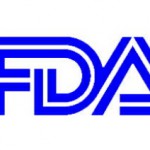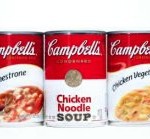The FDA has accepted Congressman Ed Markey's petition to remove regulatory approval for bisphenol-A (BPA) in infant and toddler formula containers, small reusable household containers, and canned food packaging. Back in April, the FDA ruled against a petition to ban BPA in food packaging that was filed by the National Resources Defense Council two years earlier. At that time, the government agency said they would study BPA instead of ban it. According to the petition, "because BPA is an unstable polymer and is also lipophilic (fat-seeking), it can leach from packaging into canned foods, infant formula, and other food products. Once in food, BPA can move quickly into people - a particular concern for women of childbearing age and for young children." The petition continues, "BPA is … [Read more...]
NRDC Response to FDA Decision on BPA
The National Resources Defense Council (NRDC) released a statement regarding the FDA's refusal to eliminate BPA from food packaging. Dr. Sarah Janssen, senior scientist to the public health program at the agency said: "BPA is a toxic chemical that has no place in our food supply. We believe FDA made the wrong call. The agency has failed to protect our health and safety - in the face of scientific studies that continue to raise disturbing questions about long-term effects of BPA exposures, especially in fetuses, babies, and young children." In 2008, the NRDC petitioned the FDA to eliminate BPA from food packages. After they received no response, in 2011 the NRDC sued the FDA in the U.S. District Court for the Southern District of New York. That court issued a consent decree requiring … [Read more...]
FDA Rules Against BPA Ban, Will Continue Studies
The Food and Drug Administration announced that they will continue to study bisphenol-A, or BPA as it is commonly known, rather than ban it. This decision was announced in response to a petition filed by the National Resources Defense Council in 2010, which asked FDA to ban the chemical in food packaging. The decision was part of a legal settlement with the NRDC that was reached in December 2011 after the court issued a consent degree. This was part of the FDA's statement: The Food and Drug Administration's assessment is that the scientific evidence at this time does not suggest that the very low levels of human exposure to BPA through the diet are unsafe. The agency has performed extensive research on BPA, has reviewed hundreds of other studies, and is continuing to address … [Read more...]
Campbell’s Will Phase Out BPA in Cans
The Campbell's Soup Company is going to completely phase out the use of bisphenol A (BPA) in its food cans, the company said this week in an earnings call. Healthy Child Healthy World and the Breast Cancer Fund announced the news in a joint press release. BPA is used in metal cans to prevent corrosion and increase shelf life. When foods, especially acidic foods, come into contact with metal, they react with it. That can cause aluminum or magnesium to leach into the food and weaken the metal. BPA is an endocrine disruptor; some studies have found that it may be linked to weight gain, behavior problems, breast cancer, heart disease, thyroid issues, liver abnormalities, and diabetes. The BPA in soup cans is of particular concern, since a recent study found that the BPA levels in urine … [Read more...]
France Bans BPAs in Packaging; What’s All the Fuss About?
The French caused a stir last year when they proposed a ban on BPA (Bisphenol-A) in their food packaging. The law will take effect on January 1, 2014. This change is going to have quite an effect on food manufacturers who export their product to France. If you haven't yet heard about BPA, you will. This chemical is used to make plastics found in products such as baby and water bottles because it makes them shatterproof. It also is used for can linings, since foods, especially acidic foods, must be shielded from metal. The compound is controversial because it's an endocrine disruptor. That means it mimics your body's hormones. Some studies have found BPA causes weight gain, insulin resistance, excessive breast development, and prostate cancer in rodents. The pros and cons of BPA … [Read more...]








